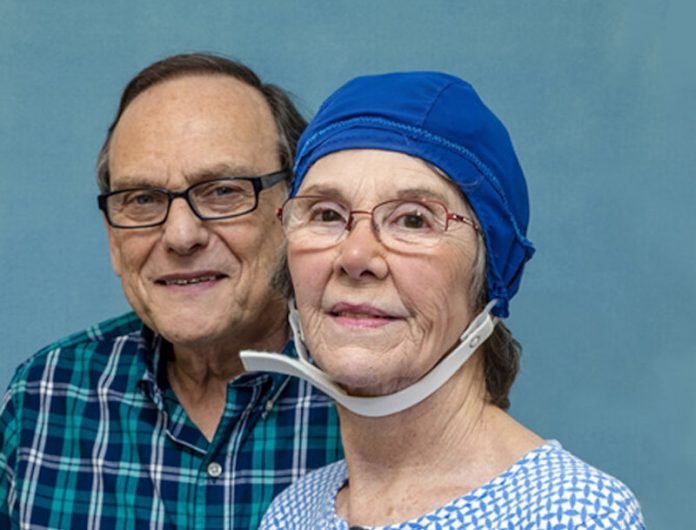
In a new study, researchers provide some encouraging news for the millions of Americans suffering from Alzheimer’s Disease.
They found a new head device could reverse cognitive impairment in Alzheimer’s Disease patients after just two months of in-home treatment
The research was conducted by a team from NeuroEM Therapeutics and the University of South Florida.
Previously, the team had shown that treating Alzheimer’s mice with electromagnetic waves in the radiofrequency range resulted in protection against memory impairment in young mice and reversal of memory impairment in old mice.
In the study, the team found that the device was safe in all eight participating patients with mild to moderate Alzheimer’s and enhanced cognitive performance in seven of them.
The cognitive function was measured by their ADAS-cog score, which is the benchmark for testing AD therapeutics.
In the treatment, the patients used NeuroEM’s first-in-class MemorEMTM head device twice daily for 1-hour.
The device has multiple, highly-specialized emitters positioned within a head cap that are activated sequentially, with treatments easily administered in-home by the patient’s caregiver.
As well, the device allows for near-complete mobility to perform nearly all household activities during treatments.
After two months of treatment, the patients showed a clinically important improvement in their memory function, and none of the patients wanted to return their head device.
The finding shows strong evidence that the device is directly affecting the Alzheimer’s disease process by easily penetrating the brain and brain cells to break up aggregates of two toxic proteins inside brain cells called A-beta and tau.
The device’s ability to disaggregate both toxic proteins inside brain cells (neurons) appears to be key to stopping and reversing the cognitive loss of Alzheimer’s.
The team believes that the device may be an entirely new therapeutic intervention against Alzheimer’s disease.
One author of the study is Amanda Smith, M.D., Director of Clinical Research, University of South Florida Health.
The study is published in the Journal of Alzheimer’s Disease.
Copyright © 2019 Knowridge Science Report. All rights reserved.



